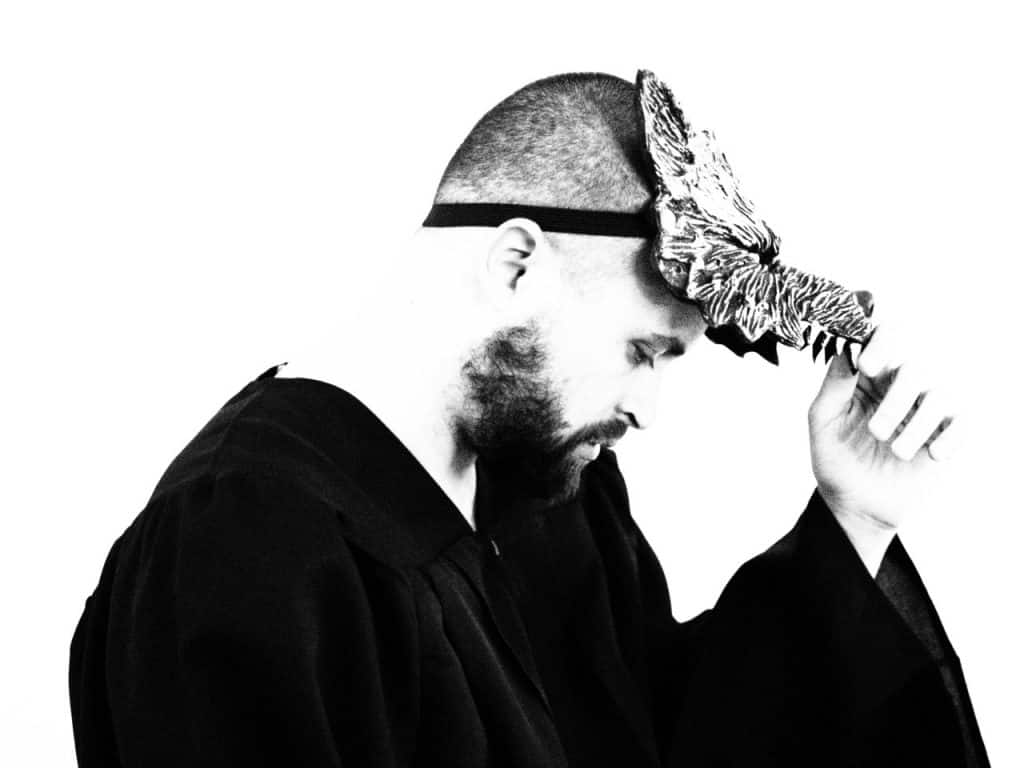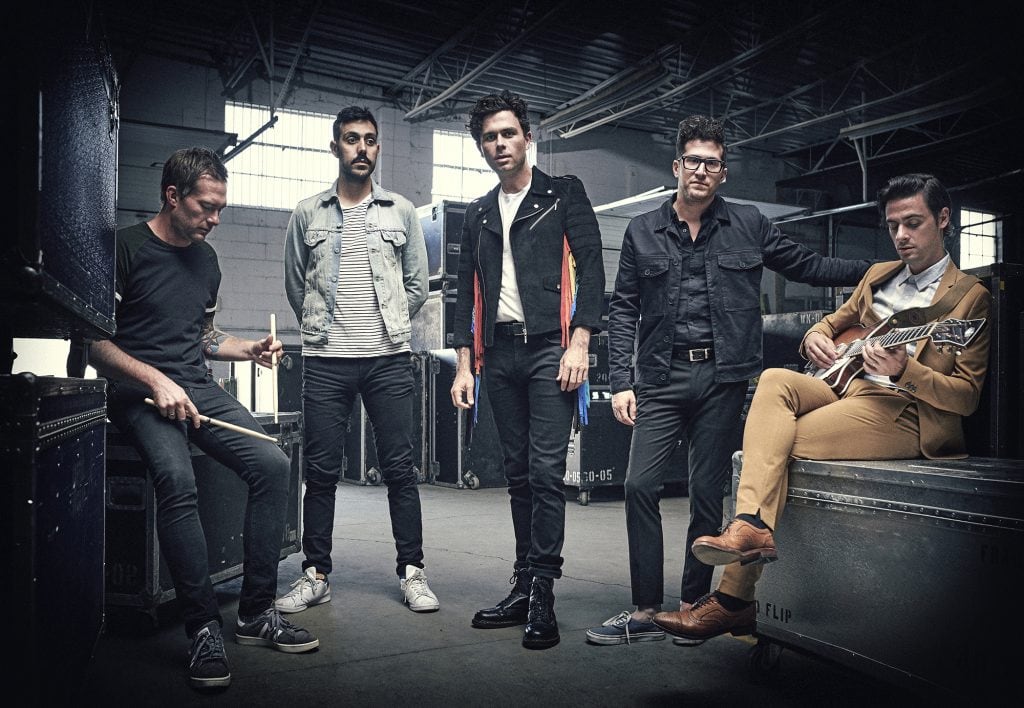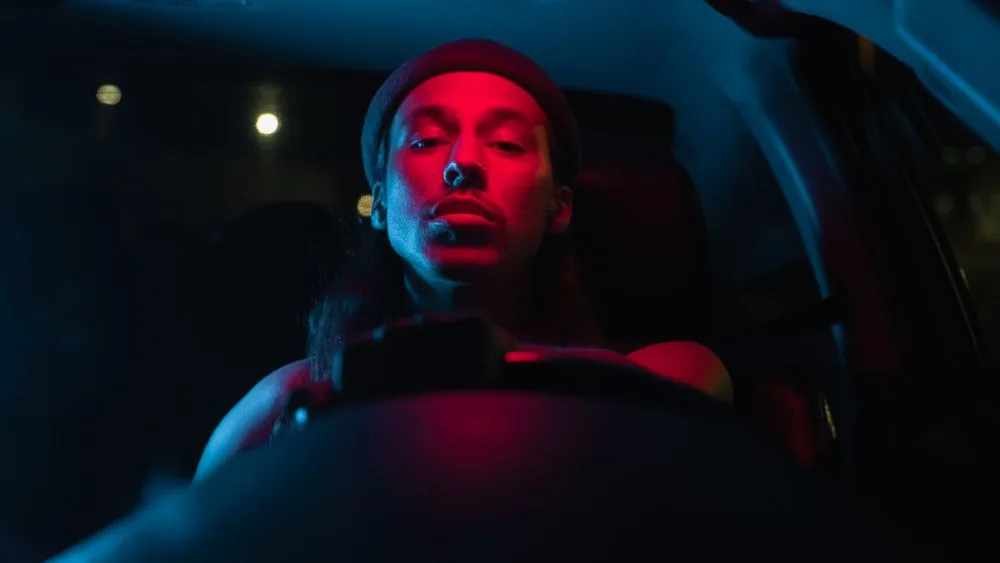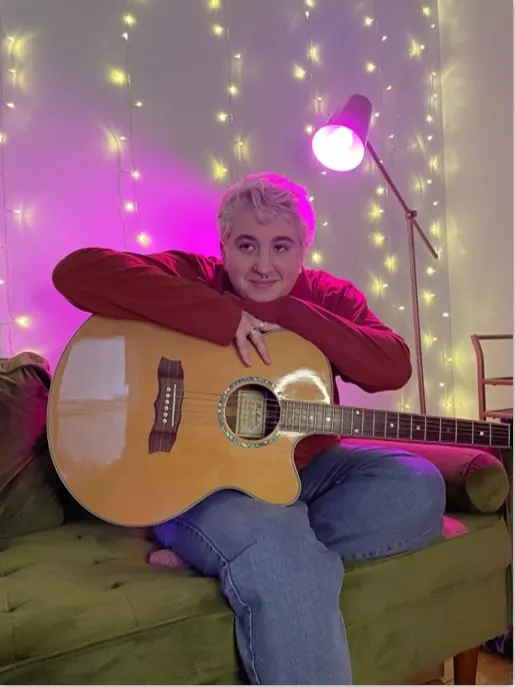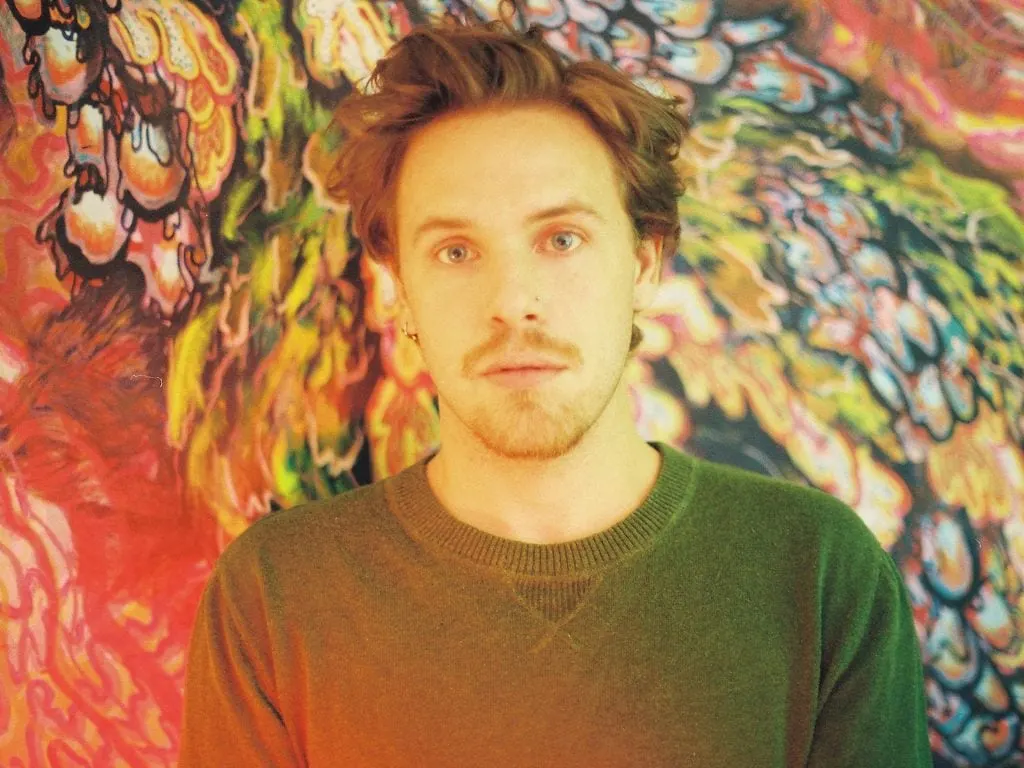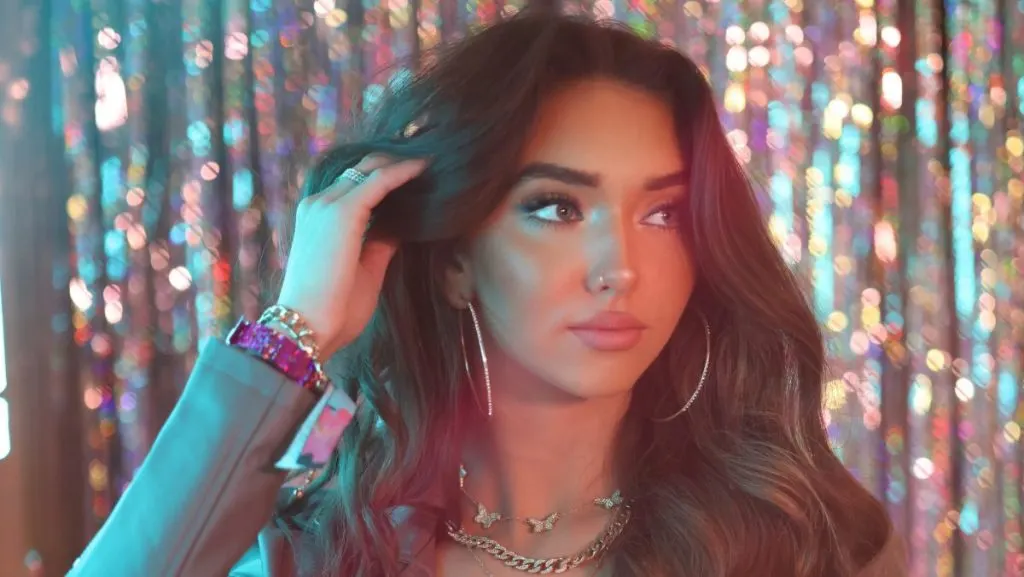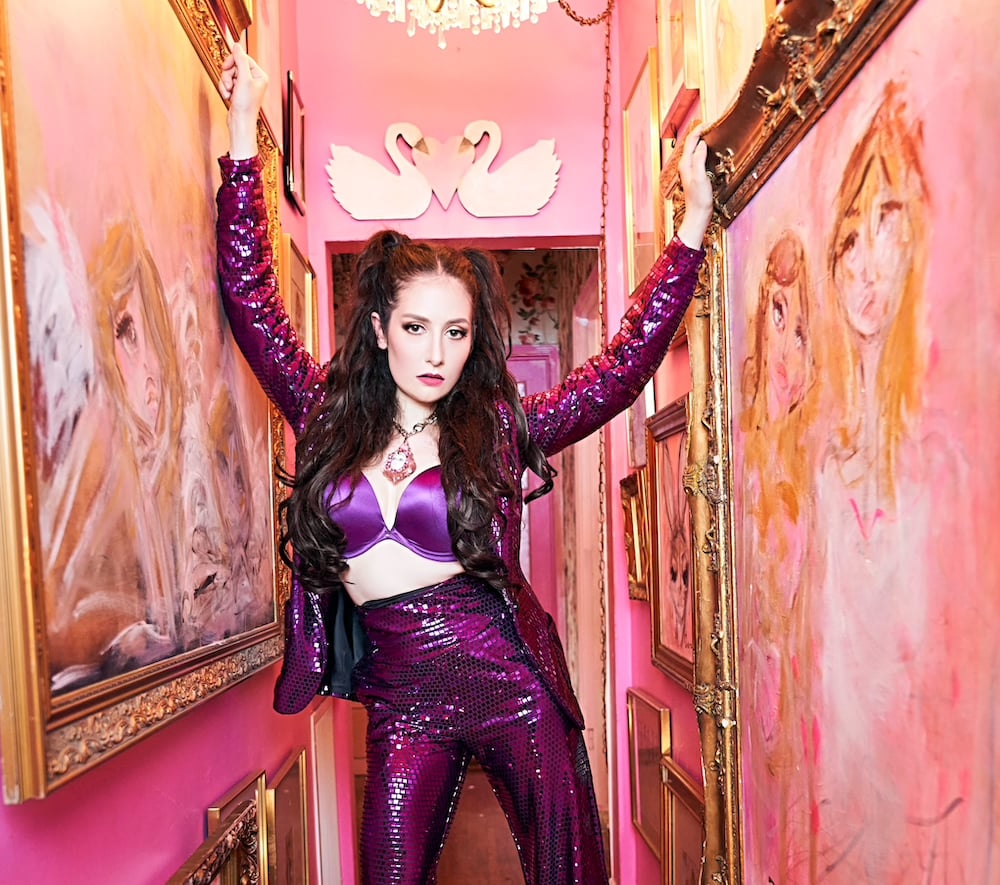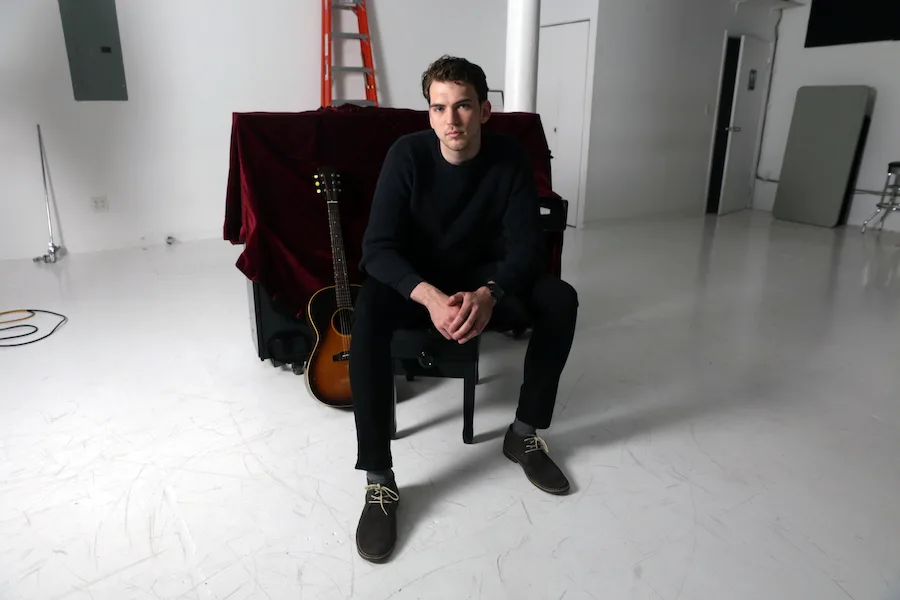Earlier in 2020, as talk show formats shifted from stages with a live studio audience to the hosts’ and guests’ homes, viewers had a chance to see Clerel, a rising singer-songwriter based out of Montreal, perform on The Late Show.
Born in Cameroon, Clerel’s voice and music have been compared to such heavyweights as Marvin Gaye, Leon Bridges, and Sam Cooke for its intimacy and soulfulness.
From a musical family, whose tastes ranged from pop to church hymns to afrobeat and French chanson, Clerel was exposed to a variety of genres and styles from a young age, and that eclectic, occasionally retro assortment comes through his compositions like “Talkin’ ‘Bout Love” and “My Anthem,” the double single released not long after his Late Show performance, and Songs from Under a Guava Tree, which features the singer collaborating with Japanese-Canadian engineer, producer, and guitarist Kento Kataoka.
Off his growing success in 2020, Clerel has a full-length album prepared for 2021. We had a chance to speak with him recently about these releases:
Let’s talk about two of your recent tracks: “Talkin’ Bout Love” and “My Anthem”: How did you go about writing these songs?
“Talking About Love” came on a hot summer evening of 2019. I’d been feeling a little under the weather mentally, so on a whim, I drove to a nearby park to clear my head a little.
I chose this specific park, La Fontaine, because it has a pond with a fountain in the middle – water has a way of making me feel grounded. Since it was pretty late, I brought my guitar along for company! I sat at a bench close to the fountain and took in the scenery.

There were various groups of fellow late-night adventurers nearby, but what captivated me were the little duck families playing around the pond’s fountain.
Watching them freely frolic to the flowing sound of the fountain, I freestyled the first line of the song (“Listen to the river flowing gently down the stream”), over the B chord I’d been mindlessly strumming the whole time. Most of the melody was written right then.
I remember how simple yet satisfying it sounded to me then, even as an unfinished composition with little lyrics, most of which I added over the following weeks.
“My Anthem”, on the other hand, I wrote at home. In the summer, I like to go to my kitchen in the morning to strum my guitar while enjoying the early morning sun. My kitchen is painted in a warm yellow, which in sunlight makes you feel awash in a powerful, restorative energy.
The kind that makes you feel so joyful to be alive that you want to capture the beauty you feel inside somehow if only to remember that feeling later. “My Anthem” was a snapshot of a morning.
Typically, how do you approach writing a song? Do you start with the lyrics first, or do you begin with guitar?
The short answer to this is, the melody usually comes first. I keep a steady log of lyrical and thematic ideas to spark my creativity, but the process of building a song only really begins for me once I have a compelling melody idea.
Earlier in 2020, you were invited to perform virtually for The Late Show: How did that feel, and how has it since influenced your career?
The whole experience was surreal. It was surreal to be receiving the invitation email from The Late Show’s production team, putting together a team to shoot and ship out a fully produced video performance in a matter of days and of course being featured in a performance series with many acts I admire.
All in the middle of a pandemic! The love I received in the wake of the performance broadcast, whether from other musicians in the scene I respect, family and friends, or long-lost acquaintances made it all the more special because that to me speaks to the connective building power of music.
Being featured on the show allowed me to be introduced to a new audience of people that may not have heard of me otherwise, as well as comforting in the belief that my work has meaning, and I think it puts us in a position to reach even more people in the future.
Your musical style has several influences. As an artist, how would you describe your style?
To put it simply, my journey as a musician and songwriter can be traced back to my first encounter with ‘60s and ‘70s Soul Music during my college years in the United States. I’d enjoyed listening and singing to many other genres prior to this, but those records made me feel connected to something more essential.
Singers like Marvin Gaye, Stevie Wonder, and Al Greene gave me a template for the beauty I could create with my own voice, and I frequently reference them in my own songwriting. I also can’t help being influenced by the African sounds I grew up listening to, as well as the hip-hop and R&B sounds I came of age with.
Whatever the project at hand, I like to combine these various influences with my own spirit to bring a fresh, memorable touch.
You also come from a musical family. How did they introduce you to music?
My first childhood memories were created to the sound of Michael Jackson’s Dangerous album. My parents kept a rich and ever-growing CD collection, one of which could almost always be found playing on our small apartment’s stereo system.
When we returned to Cameroon a few years later, they also became active members of the church, and I remember watching my father perform lead parts as part of the men’s group to general acclaim. I credit my parents for my ability to appreciate music across genres and eras.
Your website says your college roommate got you interested in playing guitar. How did this shape your sound and influence your songs?
I always loved listening to music, but I’d always thought of musicians as members of an exclusive club reserved for those with innate ability. Watching my roommate play one day, I’d expressed this to him in amazement, and he kindly took it upon himself to prove me otherwise, teaching me a few simple covers and giving me a basic rundown of the rudiments on his guitar.
As soon as I got my own guitar, I began re-arranging a lot of the music I already loved singing so that I could perform it solo with acoustic guitar. That usually meant slowing the song down a little, and providing ample spaces for vocal movement.
I developed a confidence with this configuration that would follow me through my first live performances, and it still sits at the core of most of my compositions today.
Tell us about Songs from Under a Guava Tree: What was your process for this release, and how did you and Kento Kataoka go about putting songs together.
Kento and I were introduced by a mutual friend at a show. He invited me over to his home studio to jam shortly after, and it quickly became apparent that we shared a taste for soulful, stripped-down music that emphasized the vocals.
I’d been looking to record the first few original songs I had at that point, and he kindly agreed to help record and produce them in his small but well-equipped studio.
This was the first time I had the luxury of access to a professional space to experiment with my musical ideas, and I found Kento to be a talented and resourceful creative partner.
We both had busy work schedules, so we met up once a week over the course of a year to work on the EP, usually on Tuesday nights. The initial phase – laying down the songs in their pure voice / acoustic guitar form – was completed fairly quickly.
It had originally been my plan to keep the recordings that way, but we both recognized that there were beautiful stories to be told from a textural point of view… So we spent several months figuring out how to elevate the compositions with the collection of sounds we had available.
Some arrangements like “Lonely Dance” went through several changes over the course of this process. But, the end result was well worth it.
While in quarantine, many artists have spent more time writing and/or producing their own songs, as well as engaging fans on social media. What have you been up to?
I’ve been using this time to take care of my mental and physical well-being, relying on connection with my loved ones to keep a level head.
I try to bring some levity to the times by sharing musical moments with my audience. Of course, I’ve been working on music too, which continues to be therapeutic to my mind, body and soul.
Where would you like to see your career go as an artist and performer?
I’d like to continue to grow within my craft, and continue being able to put my artistic talents in service of the pursuit of beauty and telling my stories.
I’d like for my work to make everyone feel better in spirit that comes into contact with it. I’d also love an opportunity to visit some of the places where some of my online audience lives.
If I get to do any of that while being able to support myself, I shall consider myself very fortunate!


